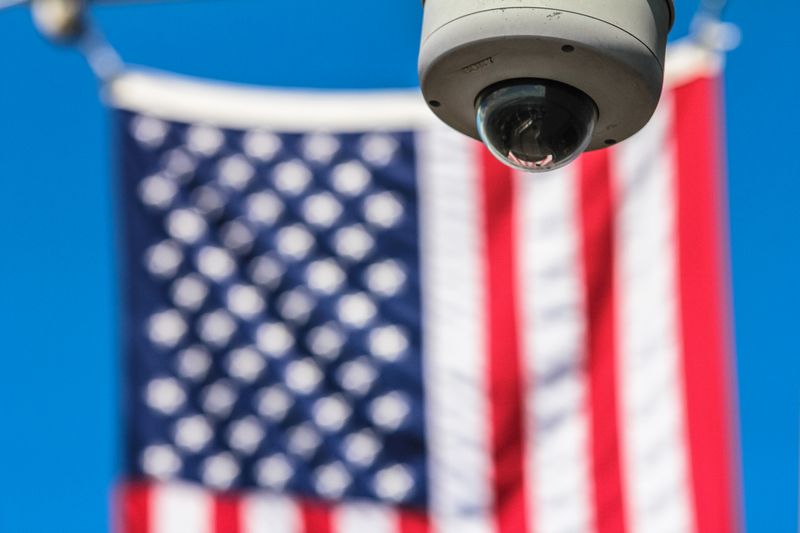Privacy Watchdog Recommends Court Approval for FBI Searches of Spy Data
Background
In a recent report issued by the majority of the Privacy and Civil Liberties Oversight Board (PCLOB), a presidentially appointed privacy watchdog, a recommendation was made for Congress to overhaul the controversial surveillance law known as Section 702 of the Foreign Intelligence Surveillance Act (FISA). The report suggests requiring court approval for searches of data belonging to U.S. persons. This recommendation has sparked a significant divide between the executive branch, including the Biden administration and the intelligence community, who argue that Section 702 is crucial to national security, and civil liberties advocates who believe it grants excessive power to the government and infringes on privacy rights.
The Controversy
Section 702 allows intelligence agencies to collect communications of non-U.S. persons abroad that transit U.S. telecommunications systems. However, there is concern that data belonging to U.S. persons is also being collected in the process, leading to potential abuses and violations of privacy rights. The current practice is that the Foreign Intelligence Surveillance Court (FISC), a secret judicial body, reviews compliance with FBI search standards after searches have been conducted for data belonging to U.S. persons. The PCLOB’s recommendation calls for this process to be revised, with court approval required before searches are carried out. This change would likely reduce the amount of U.S. person data available to the FBI under Section 702.
PCLOB Recommendations
The PCLOB’s report suggests that the FISC should consider and approve the FBI’s requests to search data collected under Section 702 for information related to U.S. persons based on the current FBI search standards. These standards state that agents are only allowed to search for data on U.S. persons if they reasonably suspect it may generate foreign intelligence information or evidence of a crime. The report also proposes two exemptions to the court approval requirement: searches related to victims and searches with victim consent in cases of criminal investigations. These exemptions aim to address concerns raised by the intelligence community that court approval could hinder investigations of ransomware attacks.
Deep Divide and Dissenting Opinions
The PCLOB’s report was passed with a 3-2 vote, highlighting the deep divide on the issue of court approval. The two Republican members of the board strongly dissented from the report, arguing that the recommendation is “contrary to the evidence and unmoored from the law.” Despite this dissent, none of the board members believe that Congress should allow Section 702 to lapse, emphasizing the perceived value of the program.
Misuse of Data and Calls for Reform
The FBI’s well-documented misuse of data collected through Section 702 has fueled calls for significant reforms to the surveillance law. Last year, a heavily redacted opinion from the court overseeing foreign surveillance revealed over 278,000 violations of rules for accessing intelligence under FISA in 2020 and 2021. These violations included the use of Section 702 intelligence against Black Lives Matter protestors and January 6 participants. The revelation of such abuses has intensified the push for reform in Congress.
Editorial
The recommendation by the PCLOB to require court approval for searches of data belonging to U.S. persons under Section 702 presents an opportunity to strike a balance between national security and privacy. While the intelligence community argues that this requirement would impede investigations and hinder the fight against cyberattacks, it is crucial to consider the protection of civil liberties and the potential for abuse of power.
The Need for Judicial Oversight
Requiring court approval is a fundamental safeguard against potential abuses of surveillance powers. Allowing an independent judicial body, such as the FISC, to review and approve search requests for data belonging to U.S. persons ensures that there is a legitimate and justifiable reason for conducting these searches. This oversight helps prevent indiscriminate surveillance and strengthens public trust in the intelligence community’s activities.
Addressing Concerns and Limiting Misuse
The PCLOB’s exemptions, which allow for searches related to victims and with victim consent, address specific concerns raised by the intelligence community regarding the investigation of ransomware attacks. By incorporating these exemptions, the PCLOB seeks to strike a balance between privacy and national security needs. The goal should be to limit the misuse of surveillance powers while still enabling effective law enforcement and intelligence gathering.
Protecting Privacy in the Digital Age
The broader debate surrounding Section 702 highlights the need for comprehensive reform to address the broader issues surrounding warrantless surveillance and the protection of Americans’ privacy rights. While the PCLOB’s recommendation is a step in the right direction, more needs to be done to establish robust legal frameworks and oversight mechanisms to protect privacy in an increasingly digital world.
Internet Security
As technology continues to advance, protecting online privacy and securing personal data becomes more critical than ever. It is essential for individuals and organizations alike to exercise caution and follow best practices to safeguard sensitive information from unauthorized access. This includes using strong passwords, regularly updating software, and being mindful of the information shared online.
Philosophical Debate
The debate surrounding Section 702 and the balance between privacy and national security is deeply rooted in philosophical discussions about the role of government, the limits of surveillance powers, and the protection of civil liberties. It is a debate that should be approached with the utmost care and consideration, involving thorough analysis of the potential consequences of various policy decisions.
Advice
In considering the future of Section 702, policymakers must carefully weigh the potential benefits of robust intelligence gathering capabilities against the importance of protecting individuals’ privacy and civil liberties. It is crucial to strike a balance that upholds both national security and the fundamental rights of individuals. Transparency, accountability, and strong judicial oversight should be guiding principles in any reforms to surveillance laws. The recommendations put forth by the PCLOB provide a valuable starting point for meaningful discussions and reforms that can help restore public trust and confidence in intelligence programs. Ultimately, the goal should be to establish a framework that safeguards privacy without compromising national security.

<< photo by Francesco Ungaro >>
The image is for illustrative purposes only and does not depict the actual situation.




